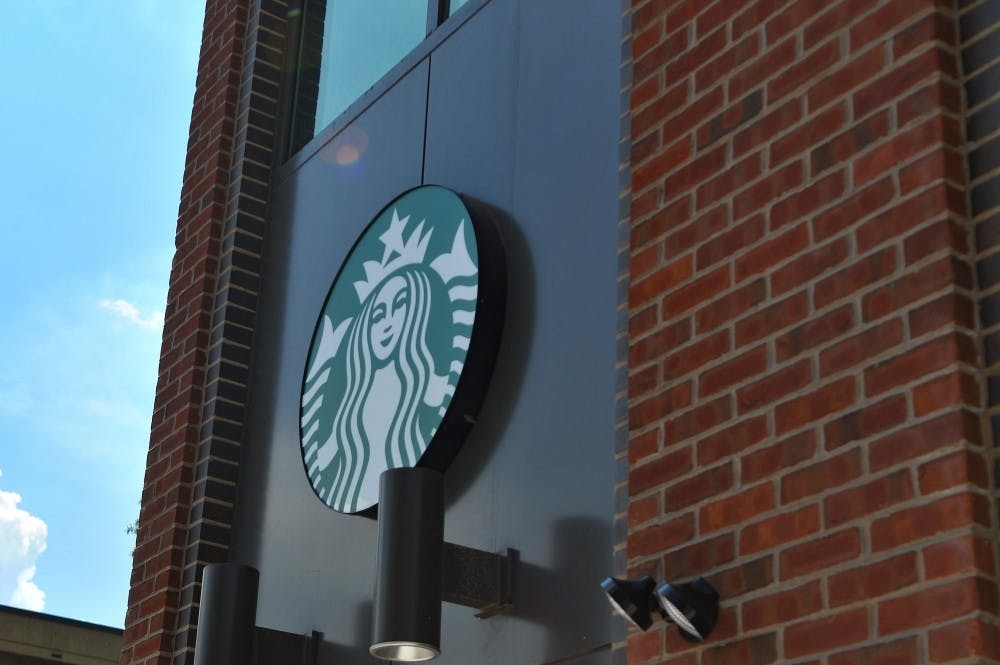
Two months after Starbucks held a four-hour anti-bias training, some Philadelphia Starbucks employees say they believe the stores still aren't getting it.
In response to the national outcry against the arrest of two black men in the Rittenhouse Square Starbucks in April, Starbucks closed 8,000 stores early on May 29 for the four-hour training .
The two men had been waiting for an acquaintance when they asked to use the restroom. A Starbucks employee denied their requests and later asked them to leave because the men had not purchased anything. When the men refused, an employee called the police, the New York Times reported.
According to the Starbucks website, the May anti-bias training had each store follow directions in the Team Guidebook. During the session, employees and managers watched 21 short videos about racial bias. They also completed a series of activities designed to promote group discussion and self-reflection on their own experiences.
One Philadelphia Starbucks employee who attended the training, a black woman in her 20s who requested anonymity out of fear of professional repercussions, did not find the training overly helpful.
She said what was taught at the program largely felt like common sense — particularly for minority employees like herself.
“If you’re a person of color, you’re going to have a different perspective on how this training went simply because there are things we, as people of color, already know,” she said. “Not to say that people of color don’t have biases themselves, but I feel that the training was more targeted to people who are less open-minded.”
Another Philadelphia Starbucks employee, a white male in his 20s who also requested anonymity out, agreed that the training had limited use for people of color.
The employee added that he considered some portions of the training needlessly distressing. He cited a short movie included in the training that featured potentially triggering footage of violent discrimination.
“They showed, like, really graphic stuff, which was good for people to see that weren’t aware of it I guess,” he said. “But for people that have experienced a lot in their lives, dealing with insensitivities and biases … some people vocalized to me that it made them uncomfortable to watch, because … there’s a lot of people here, it’s a diverse group that works here for the company, so it made people really uncomfortable.”
A third employee at a Philadelphia Starbucks, a black woman in her 20s who also requested to remain anonymous, said that the training would have benefited from more lessons designed for minorities who work at the company.
She also said that she believed some lessons should have focused on helping deal with the bias employees experience.
“I saw what it was that they were trying to do, what they were trying to accomplish, but I don’t believe that they were looking at this from the lens of somebody who faces discrimination on a daily basis,” she said. “And they should have been more sensitive to the fact that every day I face discrimination, just me personally, even at work.”
The employee said she would have especially appreciated if management had been trained to be more empathetic with the minority baristas. She said that she often feels her manager is unapproachable and would simply dismiss her claims of discrimination.
“Is my job safe if I talk about some of the things that offend me personally?” she said. “I can’t go talk to my manager about how I really feel, because, in my opinion, I don’t believe it’s going to be taken seriously. It’s just going to be, ‘Oh, she’s just an angry black woman.’”
Further, the employee believes Starbucks could have addressed prejudice beyond racism. She noted that Starbucks is a diverse space, and that the training should have been more intersectional, touching on discrimination based on sexual orientation or gender identity.
“We’re just a very diverse team and a very diverse company,” she added. “They made it into a black and white thing when it’s bigger than that. In my opinion, I feel that if we’re going to talk about diversity then we need to include everybody.”
Despite her criticism of the recent training, the employee says she is nevertheless encouraged by a commitment to confronting bias.
“This is a great company to work for, so I’m not going to talk down on it, but it’s not perfect,” she said. “And every company can be improved, including this one. So I think what happened down on 18th and Spruce [streets] is very necessary, it needed to happen, because now we’re having a conversation that we need to have.”
According to the Starbucks website, the company will try to continue this conversation — and address other biases — over the coming months and years.
However, late last month, an employee at the on-campus Starbucks store at 34th and Walnut streets allegedly mocked a Penn graduate student named "Sam" for his stutter.
Following the incident, Sam's friend, Wharton Ph.D. student Tan Lekwijit, posted on Starbucks' Facebook page describing the encounter. Starbucks allegedly deleted the post before offering Sam $5 in compensation for the incident.
The Daily Pennsylvanian is an independent, student-run newspaper. Please consider making a donation to support the coverage that shapes the University. Your generosity ensures a future of strong journalism at Penn.
Donate







